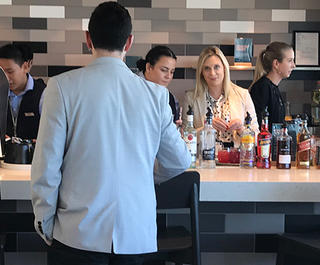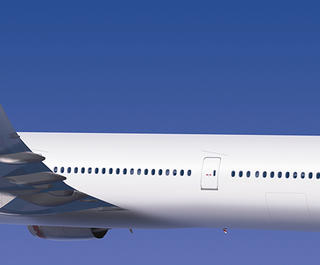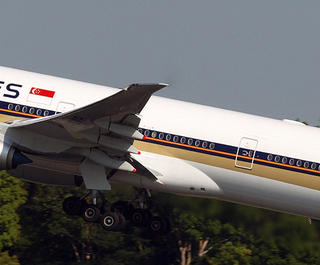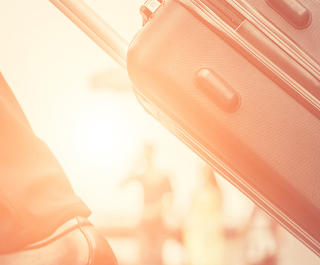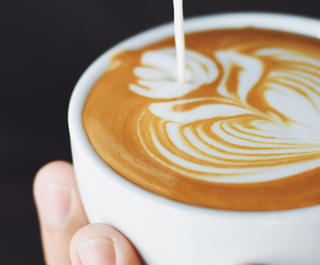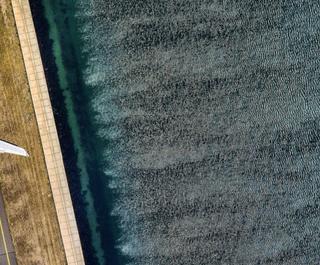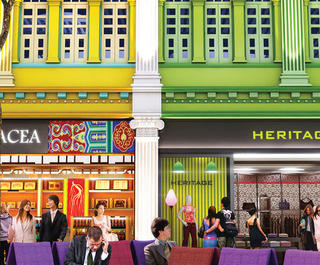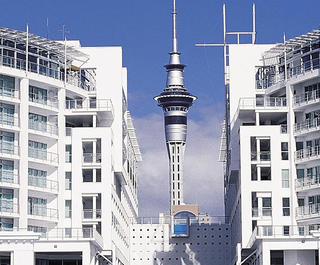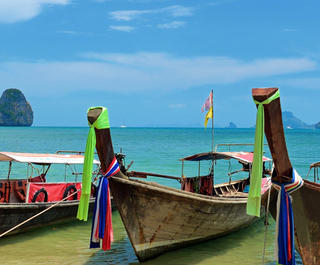
Australian airlines have been thinking differently about food in the skies for some time now, with menus designed by celebrity chefs, the use of seasonal ingredients, and carefully chosen award-winning wines. But airlines are also thinking differently about sustainable food systems, which has led to interesting partnerships with charities and social enterprises.
Qantas, for instance, late last year signed on as an ongoing food donor to food rescue charity OzHarvest, following a one-year trial that resulted in 35 tonnes of food being redistributed to people in need. (Quarantine regulations prevent collection from international flights.)
Qantas and Food ‘ResQ’ volunteers at the airline’s catering centres in Sydney, Brisbane and Melbourne collect untouched food from domestic flights, which is picked up by OzHarvest vans and distributed to other charities.
To the Rescue!
Rescued food includes unopened items such as muesli bars, cereal, baked goods and water cups, as well as fruit like apples and bananas.
It’s delivered to more than 1,000 children each week, who would otherwise go to school with no breakfast or lunch. It is also sent to drought-affected farmers, indigenous communities, women’s refuge centres, street van programs, homeless people, youth centres, ESL schools and more.
Qantas Freight and Qantas Catering Group executive manager Alison Webster said: “Every kilogram of food that can be rescued from a Qantas flight saves perfectly edible food from ending up in landfill, which not only protects the environment but helps make a positive difference to the lives of those less fortunate.”
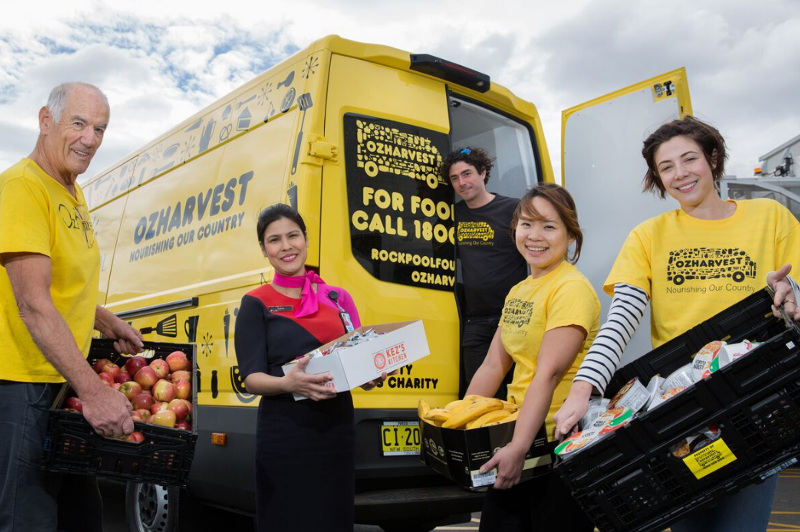 Qantas has teamed with OzHarvest to 'rescue' food from domestic flights. Image: OzHarvest
Qantas has teamed with OzHarvest to 'rescue' food from domestic flights. Image: OzHarvestThe airline says the Food ResQ program has already led to greater business efficiencies and cost savings within Qantas Catering.
As part of Qantas’s Future Planet environmental initiative, 10 beehives have been installed at the Mascot campus in Sydney. The resulting honey is served to Business and First Class passengers on international flights.
And Qantas’s carbon offset program helps 400 Peruvian farming families prevent deforestation by sustainably harvesting Brazil nuts, which again are served in First and Business class.
Fun with Fungi
Virgin Australia, meanwhile, has formed a partnership with Sydney-based social enterprise Fungimental to collect used coffee grounds from the Virgin Australia Sydney lounge, and use them to grow oyster mushrooms, which are served in Business Class.
Each week, Fungimental collects 150 kilograms of coffee waste from the lounge, and grows 30 kilograms of oyster mushrooms. Over a year, that’s about 8,000 kilograms of coffee, producing some 1,600 kilograms of mushrooms.
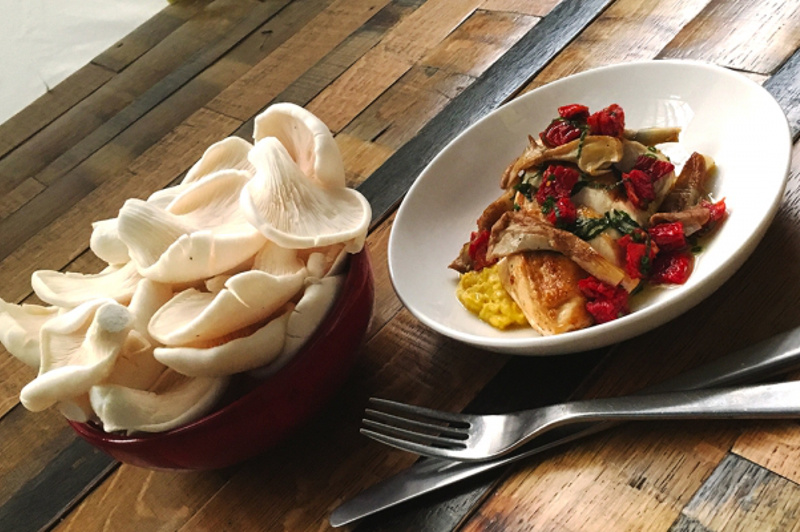 Coffee IS good for you! Virgin Australia reuses coffee grounds to grow mushrooms for your meals. Image: VA.
Coffee IS good for you! Virgin Australia reuses coffee grounds to grow mushrooms for your meals. Image: VA.Closing the circle, celebrity chef Luke Mangan has designed a special dish showcasing the mushrooms for Business Class customers on flights out of Sydney – roasted chicken breast on corn puree with oyster mushrooms and sun-dried tomato salsa.
“The dish we’ve created with the oyster mushrooms really showcases the mushroom, which has a beautiful, robust flavour,” Mangan said.
“These mushrooms truly stand up to the culinary standard on board Virgin Australia flights.”
Fungimental founder Phillip White said most coffee waste went to landfill, “where it releases methane, which is 22 times worse for global warming than CO2”.
Virgin Australia, too, has partnered with OzHarvest, donating 126 tonnes of excess onboard food – the equivalent of 379,410 meals – in the 2016 financial year.
From Go to Woe
Across the ditch, Air New Zealand has an increasing focus on sustainable sourcing. Last year, the airline partnered with socially conscious start-up Eat My Lunch to cater for internal events. For every lunch ordered, the company provides a lunch to a child in need.
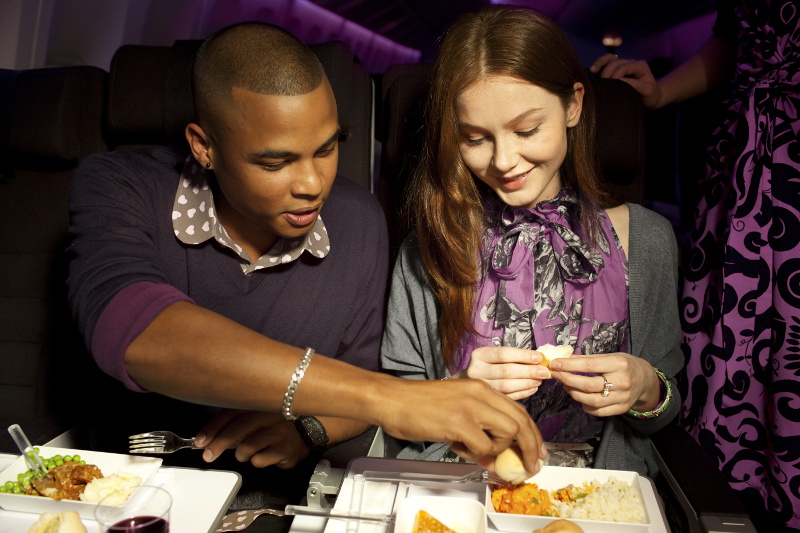 Air New Zealand runs the gamut from sustainable sourcing to reducing galley waste. Image: Air NZ
Air New Zealand runs the gamut from sustainable sourcing to reducing galley waste. Image: Air NZIt has also collaborated with its inflight catering provider LSG Sky Chefs and the New Zealand Ministry for Primary Industries to develop an international inflight waste minimisation pilot program for galley waste.
The aim is to reintroduce unopened and non-perishable snacks, dry goods and sealed beverages into the supply chain, keeping it out of landfill.

